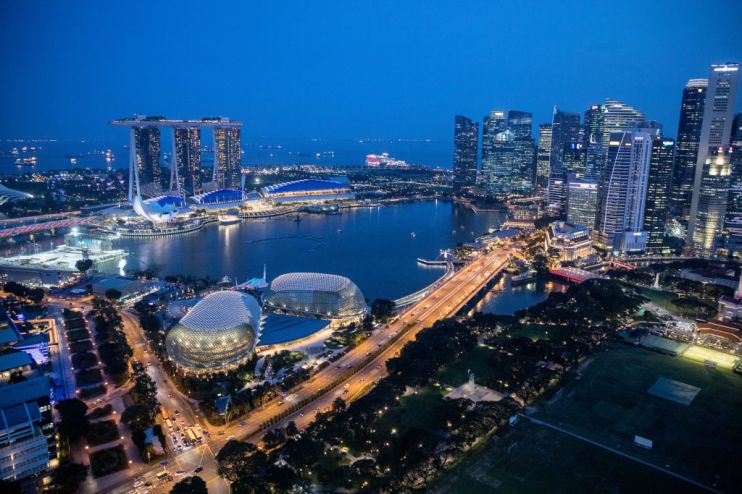Feast in the East: UK’s Pacific tie-up could be world’s first digital alliance

Last week the government announced that it was applying to join the Comprehensive and Progressive Trans-Pacific Partnership or CPTPP.
The trading group circles the Pacific with 11 members, including major economies like Japan, Mexico and Australia, and the UK’s trade with it already stands at over £100 billion.
The cabinet’s current rising star, international trade secretary Elizabeth Truss, said that membership would “deepen our ties with some of the fastest-growing markets in the world”, and the decision has been appropriately lauded.
Read more: Innovation is why London is ahead of New York, Hong Kong and Frankfurt as world’s financial capital
The CPTPP is the third-largest free trade area in the world, worth £9 trillion. Its benefits will include digital trade rules to allow free but secure data flow, a move towards reduction and elimination of tariffs and easier movement between member states for businesspeople.
But wait! Have we not just left a vast free trade area with these kinds of benefits, and done so on a point of principle?
Well, up to a point, Lord Copper. The CPTPP even has a commission, a word to send a chill down the spine of Brexiteers.
These fears can be allayed. The CPTPP commission meets infrequently (it has had three meetings since the group was formed in 2018) and has none of the signs of integrationalist ambition that was such a feature of the Berlaymont.
It is, instead, a genuine free trade area with rules focused on that goal—the sort of organisation, some would argue, that many thought we were joining when the UK acceded to the EEC in 1973. What is interesting, however, is what this says about the government’s wider foreign policy.
The prime minister has spoken enthusiastically—he has no other register—of “forging new partnerships”, and he knows the simple positive value of novelty. He has talked up the economic opportunities, as of course he must, and Truss referred specifically to services, automobile manufacturing and the whisky industry.
Cars will not have been an accidental choice: the huge Nissan plant in Sunderland, employing 7,000 workers, was regarded as a potential casualty of Brexit, and joining a free trade group with Japan has an obvious attraction.

An increasing focus on the Pacific Rim has many benefits. Hillary Clinton, as US secretary of state, christened this “America’s Pacific century”, and the opportunity to foster the special relationship from both coasts is hugely attractive.
At the same time, President Trump’s withdrawal from the CPTPP’s predecessor, the Trans-Pacific Partnership, has left a void. While the UK cannot hope fully to fill it, we are the world’s sixth-largest economy, a UN security council permanent member, a founder of NATO and play a key role in the Commonwealth: the CPTPP gives the UK another overlapping circle of allies.
Read more: Barclays CEO on the future of the City: ‘Forget Frankfurt and Paris’
Singapore is also worth highlighting. There has been much talk of a post-Brexit Britain becoming “Singapore on Thames”, and some gurus believe that we have much to learn from the microstate, which ranks highly on a number of indicators like education, life expectancy, other health outcomes, internet connection speeds and brute GDP per capita.
Many on the right instinctively admire the Singaporean model of economic success and a robust model of government, and, in schoolyard terms, it makes sense to befriend the cool kids.
There is also a symbolic aspect to the CPTPP. One can examine Brexit and its aftermath through the economic statistics and indicators, but there is also “the vision thing”, something at which Boris Johnson is supposedly accomplished and an area with which Brexiteers have struggled.
This Pacific pivot could fill in much of that gap. Brexit Britain, we might be able to say, is about expanding our horizons—literally as well as metaphorically—drawing close to dynamic and growing economies, and establishing deeper friendships with allies who share some of our cultural values and heritage.
We may have been on the EU’s doorstep. Geographically, we still are, and the EU will remain important. But we don’t need to be bound by dreary geography any more: this is the digital age, and this could be our first great digital alliance.